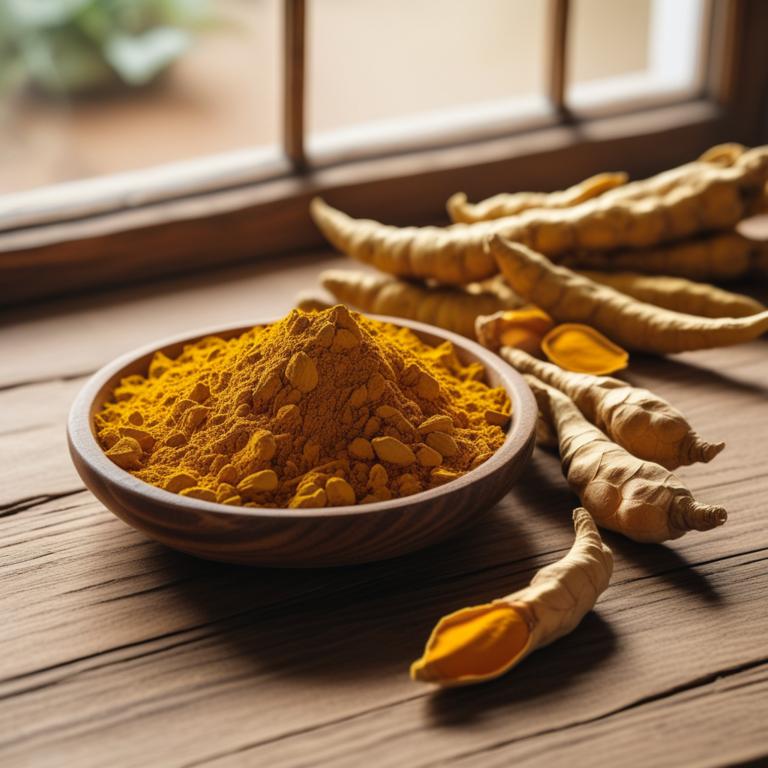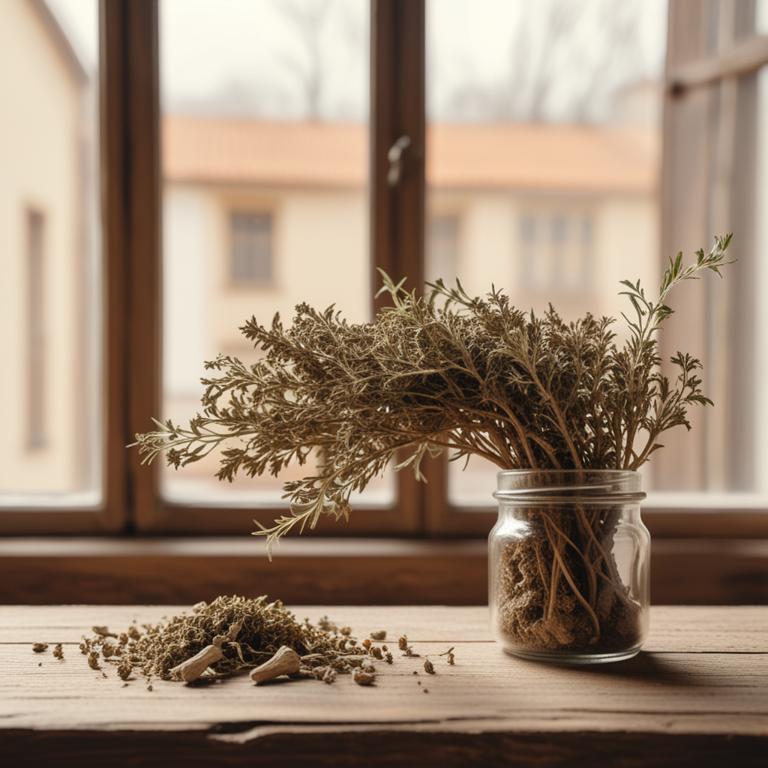Updated: Dec 1, 2024
Bone Health: A Comprehensive Guide to Causes and Herbal Preparations

Bone health is about having strong bones that can support your body and prevent injuries.
It's essential for everyday activities like walking, running, and even simple tasks like carrying groceries. When your bones are healthy, you feel more energetic and confident. But when your bones weaken, it can lead to pain, fractures, and a loss of independence. The causes of bone health issues are often related to age, diet, and lifestyle. As we get older, our bones naturally lose density, making them more fragile. A diet lacking essential nutrients like calcium and vitamin D can also contribute to bone health problems.
Additionally, some medical conditions like osteoporosis can weaken bones and make them more susceptible to breaks. Fortunately, there are several herbs that can help promote bone health. Herbs like ginseng and ashwagandha are known for their ability to boost energy and reduce stress, which can help support bone health. Other herbs like horsetail and nettle are rich in calcium and other minerals that are essential for strong bones. To use these herbs for bone health, you can try drinking teas or infusions made from dried herbs. Horsetail tea, for example, is a popular choice for its high calcium content. You can also take supplements or add powdered herbs to your meals.
Another option is to use topical creams or ointments that contain herbs like ginseng or ashwagandha to help reduce inflammation and promote healing.
Table of Contents
What causes bone health to deteriorate?
The main causes of bone health are four key elements that work together to keep our bones strong and healthy.
Firstly, Vitamin D is essential as it helps our body absorb calcium, which is the main building block of bones. Without enough Vitamin D, our body can't use calcium effectively, leading to weak bones. Secondly, Calcium is crucial as it gives bones their strength and structure.
When we don't get enough Calcium, our bones start to break down and weaken over time. Thirdly, Vitamin K also plays a vital role in bone health as it helps our body use Calcium correctly. Vitamin K helps to direct Calcium to the right places in our bones, keeping them strong and healthy. Lastly, regular Exercise is also important as it helps our bones stay strong by putting stress on them in a controlled way.
When we exercise, our body responds by building more bone tissue, which keeps our bones healthy and resilient.
What are the benefits of incorporating herbs into a diet for bone health?
Herbs have been used for centuries to support bone health, and for good reason.
They can help strengthen bones, making them less likely to break or fracture. Some herbs can also reduce inflammation in the body, which can contribute to bone loss.
By reducing inflammation, these herbs can help slow down bone deterioration. Additionally, certain herbs have been shown to promote bone growth and density, which can be especially beneficial for people with conditions like osteoporosis. Some herbs may also help regulate hormones that are important for bone health, such as calcium and vitamin D. This can be especially important for people who have trouble absorbing these nutrients from their diet.
Overall, herbs can be a natural and effective way to support bone health, and may be a good addition to a healthy diet and lifestyle.
What are the essential herbs for achieving optimal bone health?
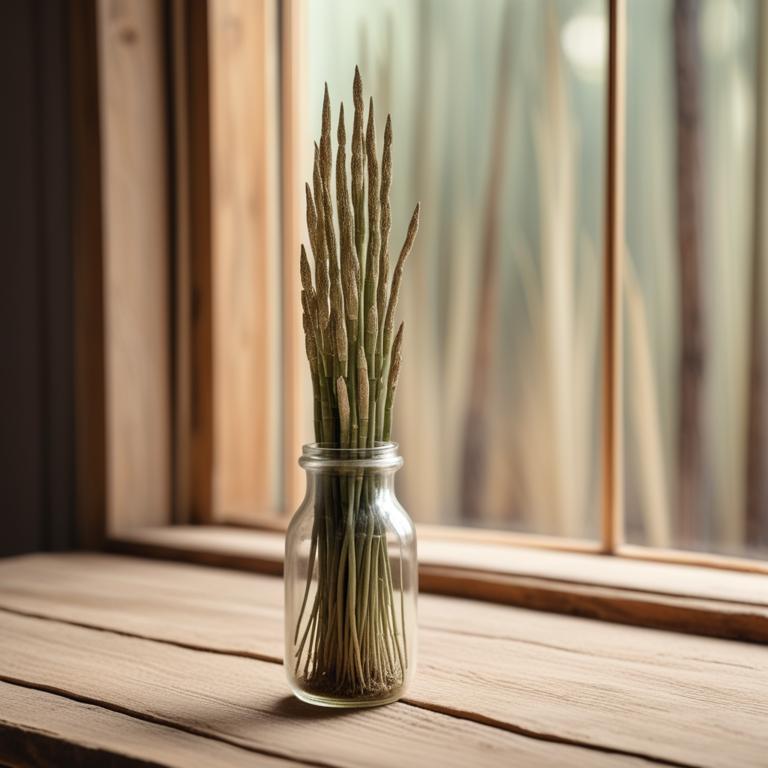
Herbs can be a great addition to your diet for maintaining strong bones.
Equisetum arvense, also known as horsetail, is high in silica, a mineral that helps build and strengthen bone tissue. This herb has been used for centuries to treat bone-related conditions like osteoporosis. Ginkgo biloba may not be the first herb that comes to mind when thinking about bone health, but it has anti-inflammatory properties that can help reduce inflammation in the joints, which can contribute to bone loss. By reducing inflammation, Ginkgo biloba can help keep your bones healthy.
Licorice root, or Glycyrrhiza glabra, is often used to treat osteoporosis and other bone-related conditions. It contains compounds that can help stimulate bone growth and density. Astragalus membranaceus, also known as Huang Qi, has been used in traditional Chinese medicine for centuries to treat a variety of conditions, including those related to bone health. It's believed to have anti-inflammatory properties that can help reduce inflammation in the joints and promote bone growth. Ginger, or Zingiber officinale, is another herb that's often used to treat digestive issues, but it also has anti-inflammatory properties that can help reduce inflammation in the joints.
By reducing inflammation, ginger can help keep your bones healthy and prevent conditions like osteoporosis.
What are the most popular herbal supplements for bone health?
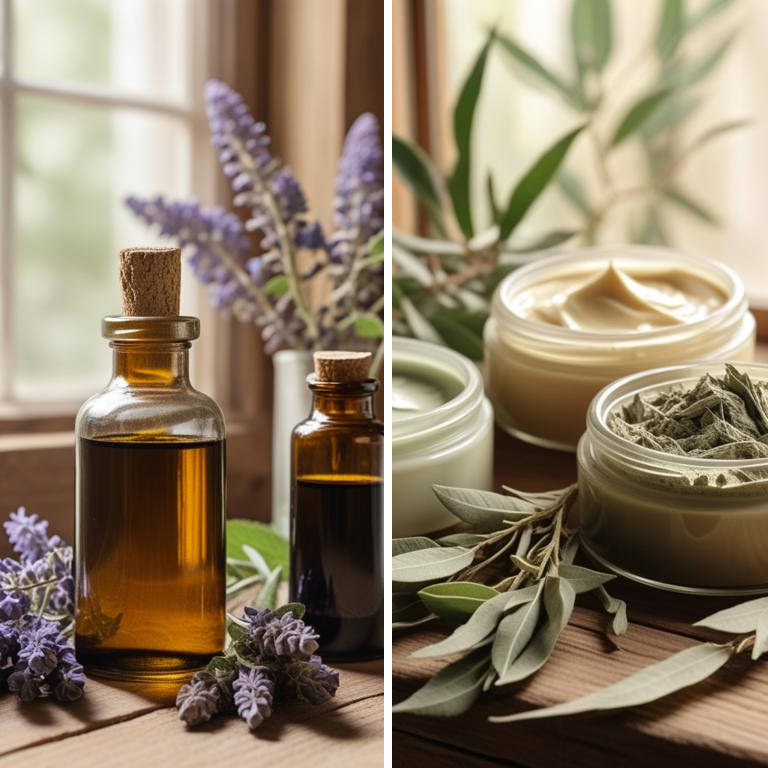
Herbal preparations can be beneficial for bone health because they often contain essential nutrients and compounds that help support bone growth and strength.
A decoction is a liquid herbal preparation made by boiling herbs in water for a longer period. It's particularly good for bone health because many herbs, like ginseng and licorice root, contain minerals and vitamins that are important for bone health, such as calcium and vitamin D. A tincture is a liquid extract of herbs that are made by soaking them in a solvent like water or alcohol. Tinctures can be beneficial for bone health because some herbs, like horsetail and stinging nettle, contain silica and other minerals that help strengthen bones. An infusion is a liquid herbal preparation made by steeping herbs in hot water.
It's a good way to get the nutrients from herbs like alfalfa and oat straw, which are rich in calcium and other minerals that support bone health. A topical cream is a preparation that you apply directly to your skin. It's a good option for bone health because some herbs, like arnica and turmeric, have anti-inflammatory properties that can help reduce pain and inflammation in the joints. Lastly, a capsule is a tablet or powder that contains dried herbs.
It's a good way to get the nutrients from herbs like calcium-rich dandelion root and bone-strengthening ashwagandha.
Additional Resources:
Are there any herbs that may interfere with bone health?
If you're concerned about your bone health, it's a good idea to be cautious with certain herbs.
Panax ginseng, for instance, can affect blood clotting, which might make it harder for your bones to heal if you have an injury. It's also high in vitamin K, which can interfere with the medicines often used to treat bone conditions like osteoporosis. Angelica sinensis, also known as dong quai, contains coumarins, compounds similar to those found in blood thinners. These can make it difficult for your bones to mend, especially if you have a condition that requires surgery.
Podophyllum peltatum, or mayapple, contains a toxic compound that can harm your bones in high doses. However, it's also used to treat conditions like arthritis, which might seem contradictory, but it's essential to be cautious with this herb, especially if you're taking other medications. Cimicifuga racemosa, or black cohosh, might seem like a safe choice, but it can also affect blood clotting and interact with certain medications. If you're taking medicines for bone health or have a condition like osteoporosis, it's crucial to talk to your doctor before using black cohosh. Urtica dioica, or stinging nettle, is often used to treat conditions like arthritis, but it can also affect blood clotting and interact with certain medications.
If you're taking medicines for bone health or have a condition like osteoporosis, it's essential to talk to your doctor before using stinging nettle.
FAQ
Are there any specific herbs that can prevent bone health?
Certain herbs like alfalfa and dandelion root are believed to support bone health.
Alfalfa is rich in calcium and other minerals, while dandelion root contains compounds that may help reduce inflammation and promote bone density.
These herbs are often used in traditional remedies to maintain strong bones.
Is it safe to use herbal remedies for bone health during pregnancy?
If you're pregnant and considering herbal remedies for bone health, it's essential to be cautious.
Some herbs, like alfalfa and nettle, are rich in calcium and might seem beneficial. However, others, like black cohosh, can affect hormone levels during pregnancy.
More research is needed to fully understand the safety of these remedies.
Are there any herbs that can reduce the frequency of bone health?
Some herbs may help reduce bone loss frequency.
For example, rosemary contains compounds that could help prevent bone breakdown. Ginger's anti-inflammatory properties may also benefit bone health. Turmeric, with its curcumin, has been shown to slow bone loss in some studies.
These herbs might support bone health, but more research is needed to confirm their effects.
Related Articles

The Causes of Gout: Exploring Herbal and Medicinal Treatments

Neck Pain Relief Through Medicinal Herbs and Herbal Preparations
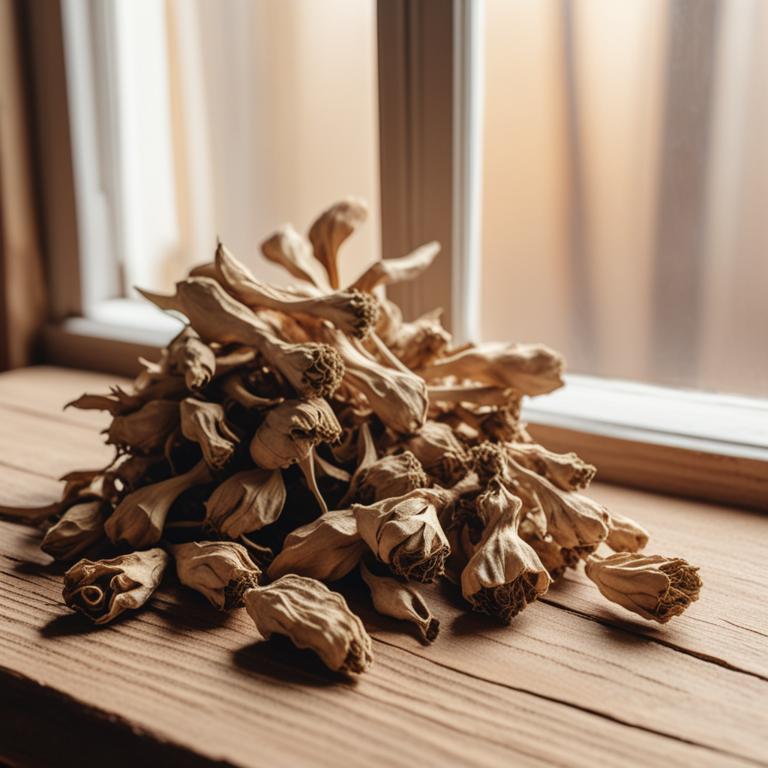
Herbal Solutions for Reducing Joint Stiffness and Improving Mobility
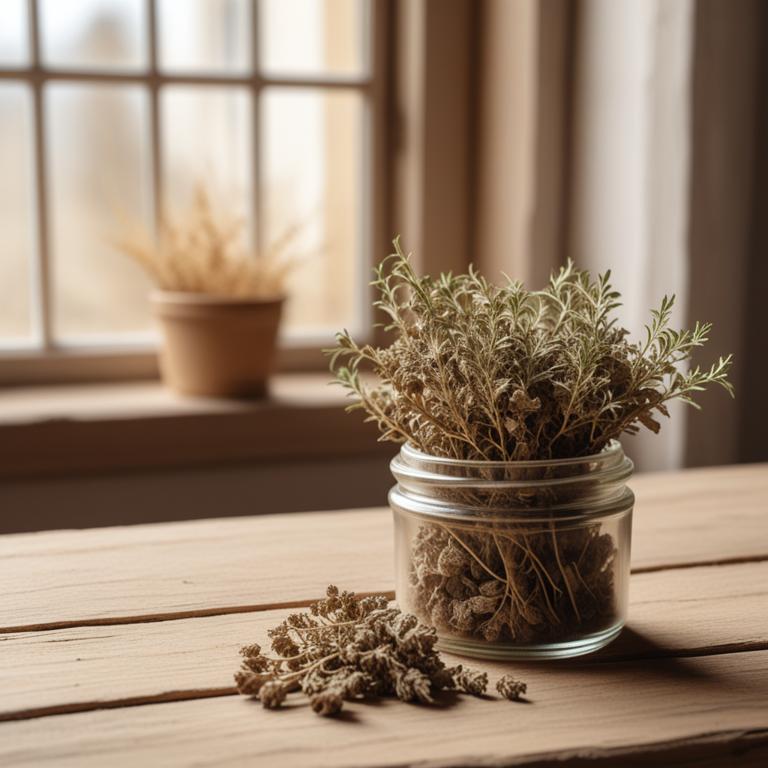
The Causes and Effects of Rheumatoid Arthritis and Herbal Preparations
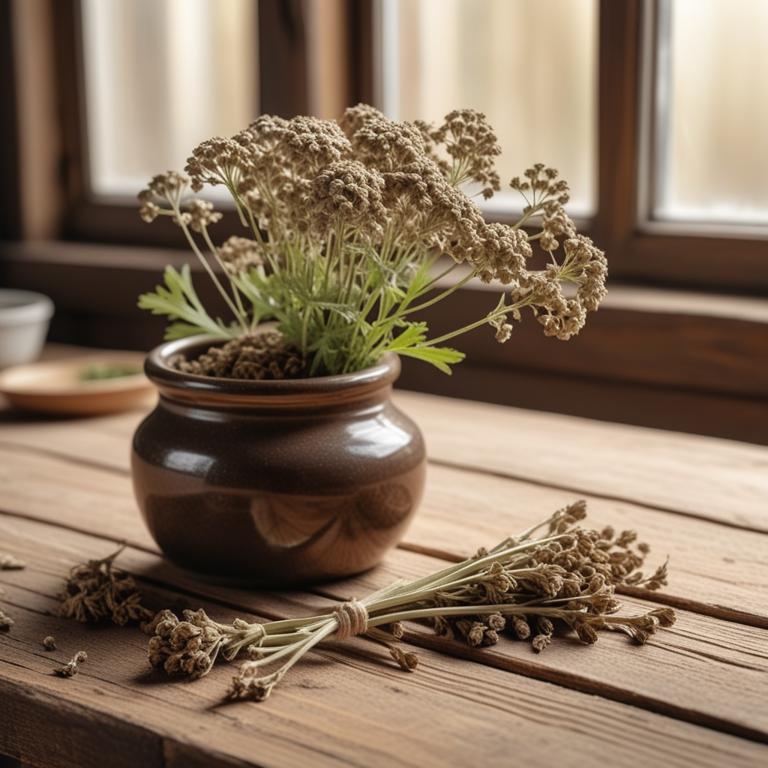
Understanding and Treating Leg Cramps with Medicinal Herbs
